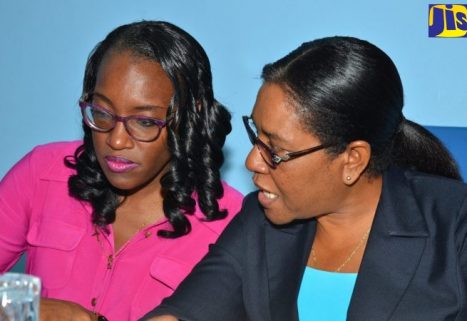Jamaicans Encouraged To Create Positive Learning Environments For Children

Jamaica Information Service
Superintendent of Police, Velma Thomas-Gayle, of the Community Safety and Security Branch, is calling on more Jamaicans to promote and build positive learning environments in homes and schools, especially for young children and adolescents.
Speaking at a policy forum, titled ‘Safety and Security: Crime Prevention Through Social Intervention’, at the Management Institute for National Development (MIND) in St. Andrew, on January 31, she said positive learning environments, as well as critical social intervention programmes, will assist in building empowered youth and adults, and assist in curbing the levels of violence and untoward behaviour in the society.
She encouraged parents and guardians to instil positive attitudes and behaviours in children, such as honesty, respect for one’s self and respect for others, positive thinking and good manners.
Superintendent Thomas-Gayle said the Community Safety and Security Branch is actively pursuing social intervention programmes in schools and communities.
Chief among them are the Safe School Programme, which aims to reverse the trend of violence in schools and foster learning, safety and social behaviour, and the Police Youth Club, which seeks to foster better relationships between communities and the Police.
The Superintendent said the Safe School Programme also provides academic focus and supports students in achieving high standards, while fostering positive relationships between the schools, and promoting meaningful parental and community development.
Turning to the Police Youth Club, she informed that more than 400 clubs have been established islandwide, noting that the clubs assist in moulding the minds of members.
“These programmes promote the relationship between the police and the students and provide training opportunities to youth in the field of sport, drama and art, while developing their mental, physical and spiritual lives,” she said.
The Superintendent lauded the partners that have worked with the Community Safety and Security Branch in implementing the various programmes. These include the United States Agency for International Development (USAID), Jamaica Social Investment Fund (JSIF), National Integrity Action (NIA), and the Ministries of National Security; Health and Wellness; and Education, Youth and Information.
“Crime can only be made less attractive by introducing a balance between honest ways of achieving goals and your dreams,” she said.
The Superintendent called on Jamaicans to be agents of change and to provide mentorship to children by instilling positive values and attitudes.
“Crime is not [only] the police’s business… . Crime is everybody’s business,” she emphasised.
For her part, Executive Director, Violence Prevention Alliance, Dr. Deanna Ashley, explained that all forms of violence have a negative impact on the brain’s development.
She said children should have positive parents and/or caregivers, as well as school environments that have a positive approach to teaching, pointing out that the maturation of the frontal lobe of the brain is not complete until around age 25.
The frontal lobe is the part of the brain that controls important cognitive skills in humans, such as emotional expression, problem solving, memory, language, judgement, and sexual behaviours.
The Superintendent said violence experienced by children at a young age may lead to negative behaviours, aggression, bullying, suicide, sexual abuse, violence and involvement in illegal activities and crime.
